Presentacions
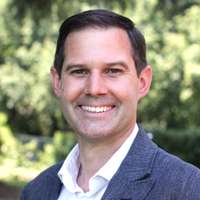 Utilizing Agroecology in your development work
Utilizing Agroecology in your development work
Biographical information: Abram Bicksler, Ph.D., is the President/CEO of ECHO, a global Christian technical resourcing and networking organization based in Fort Myers, Florida. He is responsible for leading the overall global programs and operations of the organization in order to help it achieve its vision of Honoring God by empowering the undernourished with sustainable hunger solutions. With more than 15 years of international experience, including five years as Director of ECHO’s Asia Regional Impact Center from 2013-2018, Bicksler most recently served as an Agricultural Officer in the agroecology team at the Food and Agriculture Organization of the United Nations (FAO) in Rome, Italy. He is passionate about holistic mission and empowering people to use their gifts, skills, education and experiences to bring healing to people and the creation.
Session: Agroecology is quickly gaining traction around the world as a science, practice, and social movement to make transformational changes to our food systems. Often described as the utilization of ecological concepts and principles to the design and management of sustainable food systems, agroecology offers a way forward to benefit individuals, communities, economies, and the environment holistically while contributing to multi-dimensional sustainability. This talk will provide an overview of agroecology, an introduction to FAO’s 10 Elements of Agroecology, and ways that a diverse network of practitioners and development workers can use the 10 Elements to frame a systems-wide approach to sustainable development that puts people at the center.
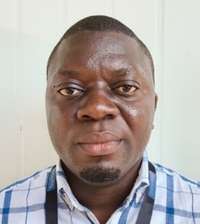 Conservation Agriculture for sustainable return and re-integration of IDPs and returnees
Conservation Agriculture for sustainable return and re-integration of IDPs and returnees
Biographical Information: Laban Ashioya (MSc. Development Studies, PMP®, ICPAK) has over 12 years experience in program development, partner management and grants management. His expertise cuts across the areas of Agriculture, Food Security and Livelihoods, Water, Sanitation and Hygiene, Health and Nutrition, Gender and Protection, Peacebuilding and Social Cohesion, and Governance. He has significant experience working with faith-based organizations, leading programs and initiatives geared at transforming local food and livelihood systems.
Session: Tearfund, with funding from Global Affairs Canada (GAC) and Canadian Food Grains Bank (CFGB) supported 1,000 households, largely IDPs and returnee households in Kajo Keji county. This presentation will focus on the approaches taken by Tearfund to support the households to adopt Conservation Agricultural practices, and entrench gender equity in the local food systems.
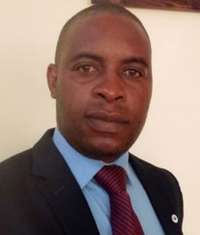 Disaster Resilience – Best practices on climate adaptation in Cuiebet and Fangak Counties of South Sudan
Disaster Resilience – Best practices on climate adaptation in Cuiebet and Fangak Counties of South Sudan
Biographical Information: Eddington Wadzanai Chinyoka is the Country Programme Manager – Humanitarian and Resilience of Norwegian People’s Aid (NPA). He is an experienced humanitarian and development practitioner with a demonstrated history of working in the humanitarian and development sector in different contexts of East, West, Central and Southern Africa for more than 16 years. He is a strong program and project management professional and currently a PhD candidate majoring in Disaster Resilience at University of the Free State, a holder of Master of Business Administration (MBA) from Midlands State University (MSU) Zimbabwe, a Masters in Disaster Management from National University of Science and Technology (NUST) Zimbabwe and a Bachelor's (Hon) degree in Agriculture (Soil Science), University of Zimbabwe (UZ).
Session: The presentation will highlight effects of climate change and related shocks, how climate change has affected local communities and made them susceptible to disasters like flooding and droughts. The presentation will display some best practices implemented by NPA to mitigate against and respond to disasters related to climate change including innovations on climate resilient agricultural practices.
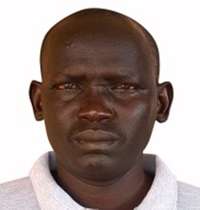 Best practices in brooding poultry: a guide for poultry development
Best practices in brooding poultry: a guide for poultry development
Biographical information: Adda Thomas is a farmer and pastor. He lives in the Kiryandongo Settlement in Uganda.
Session: His presentation will highlights best practices in rural poultry keeping, featuring practical advice for housing, brooding and feeding.
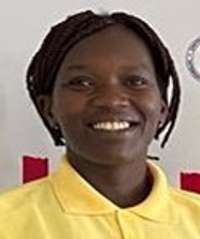 Seed production and agribusiness development
Seed production and agribusiness development
Biographical information: Mildred Lawino Ocida is the Food Security and Livelihood Officer of the Gender Equity and Women Leadership Program. She has a degree in Agro-entreprenuership and Communication Management, and three years of experience in implementing food security and livelihood projects in Central and Eastern Equatoria State of South Sudan. She was among youth who participated in 2022.
Session: She will present on seed production and inspection, agribusiness enterprise development, vegetable production, agribusiness marketing, and work at an Aggregation Center for Technology Management.
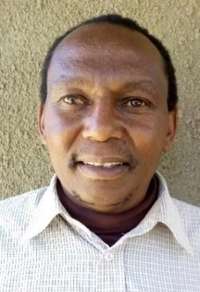 Promoting ‘Maresha’ scale-up through mechanization service providers
Promoting ‘Maresha’ scale-up through mechanization service providers
Biographical information: Harold Msanya is an engineer by profession and has implemented community-based projects for over 20 years in Tanzania. Major areas of interventions include: - Integrated Water Resources Management, Agriculture, Renewable energy, and appropriate technologies. For the last seven years, Harold has been working for ECHO EA as Innovation Coordinator, leading the Appropriate Technology section to work with small scale CA farmers to develop solutions for draft power and animal welfare challenges.
Session: This presentation will entail discussion on the promotion of the ‘Maresha seed planter through the mechanism of private farmers who act as service providers for payment, and how the private sector can be an effective means of scaling up a project.
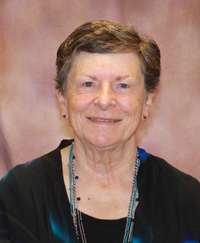 “Why not just…” Context impacts sustainability
“Why not just…” Context impacts sustainability
Biographical information: Bev Abma works with American Friends of the Asian Rural Institute (AFARI) Growing Hope Globally. She is a Canadian with a B.Sc. in Nursing and lengthy nonprofit community development experience around the world. She is a Jesus follower and widow with two children, their spouses and four granddaughters, all precious.
Session: Combinations of environmental, physical and social factors make each context unique. Successful development and scaling up initiatives take these into account. Learn from basic principles and experiences.
 Green manure/cover crops in conservation agriculture
Green manure/cover crops in conservation agriculture
Biographical information: Charles Bonaventure (called "Bonny”) is a Technical Advisor for ECHO East Africa. Bonny worked with the Tanzanian government since 1986 before joining World Vision Tanzania in 2004 as an Agriculture Trainer. For eight years, he served with World Vision Tanzania in various capacities as Team Leader of a Food Security Project, Policy Review Officer, and Program Coordinator. Prior to joining ECHO, he worked with Global Service Corps as M&E Officer. He holds two bachelor degrees in Horticulture (Tanzania) and Rural Development (The Netherlands). Bonny joins ECHO with a passion for agricultural development and practices that will reduce hunger, improve livelihoods, and increase community resilience.
Session: Cover crops play a key role in sustainable agriculture by providing sustainable sources of nutrients as well as protective soil cover to minimize erosion and reduce moisture stresses. Examples of successful cover cropping systems in East Africa will be illustrated as well as constraints and principles for implementing cover crops in other farming systems.
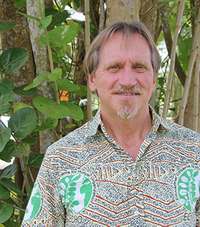 Population growth and implications for sustainable food security
Population growth and implications for sustainable food security
Biographical information: Erwin Kinsey, ECHO East Africa Director, holds a BSc in Animal Science from the University of Vermont and MSc in Rural Development from the University of London & SOAS. He worked for 30-years with Heifer International in Tanzania assisting over 30,000 families with livestock and training, and pioneering in-kind credit whereby female livestock offspring and training were passed on to neighboring project farmers. For five years he directed the diversification of Global Service Corps Tanzania’s food security interventions and since 2012 joined ECHO to foster wider sharing of interventions across the region.
Session: Do these population figures need to concern us?
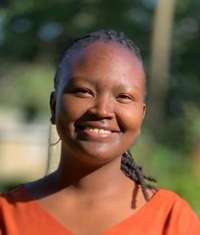 Community seed banks to improve plant-based nutrition
Community seed banks to improve plant-based nutrition
Biographical information: Faith Juma is the Seed bank Manager for ECHO East Africa since September 2019. She holds a Bachelor Degree of Science in Human Nutrition from the Sokoine University of Agriculture (SUA) and has several years of experience facilitating seed saving and banking.
Session: The session discusses how to start community seed banks to improve plant-based nutrition.
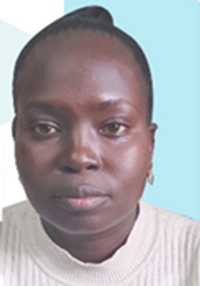 Women and girls at the helm of food security, food processing and value addition in South Sudan
Women and girls at the helm of food security, food processing and value addition in South Sudan
Biographical information: Gloria Soma Modong Morris is a South Sudanese activist for women and children in South Sudan and the Executive Director of Titi Foundation, a national women-led NGO.
Session: Gloria will be speaking on the general themes of gender, women and girls issues and topics around food processing and value addition.
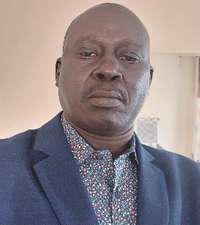 Seeds and agro-input-based themes: Transitioning from input aid to market-oriented agro-input system
Seeds and agro-input-based themes: Transitioning from input aid to market-oriented agro-input system
Biographical information: Samuel Deng Maguet was born in 1972 in Juba, South Sudan and went to school in early 1978. His education was disrupted in 1983 and later he joined the Sudan People Liberation Army (SPLA) in 1987. He went back to school in 1995, and obtained a Bachelor’s degree in Agriculture in 2004 from the University of Eastern Africa, Baraton, Kenya. He later obtained a Master’s degree in Food Security in 2011 from Andrews University, Barinn Spring, Michigan, USA. He completed a Master of Arts in Monitoring and Evaluation requirements in 2019 from the African Nazarene University, Kenya. He has 18 years of progressive work in both humanitarian work in the private sector in South Sudan. He started work for an international non-governmental organization in 2005 and currently manages a consultancy firm.
Session: His presentation will discuss seed systems and transitioning from aid to market-orientated development. He will discuss seed multiplication options, quality issues, last-mile agro-dealer and seed companies models. He will base his themes on i) current practices in the seed sector, ii) local versus hybrid seed, iii) seed companies and their role in agricultural development iv) local technologies to achieve high-notch yields, the efforts of UN-Agencies, NGOs, and the private sector in ensuring availability, accessibility and affordability of seed, and v) transitioning from seed aid to market oriented agro-inputs - considered the best practice in agricultural extension which is agro-input orientated.
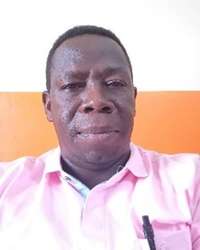 The localized food value chain's potential to boost economic growth and reduce humanitarian aid.
The localized food value chain's potential to boost economic growth and reduce humanitarian aid.
Biographical information: Oliver Michael is the program manager of Help a Child South Sudan. He is a skilled professional from South Sudan, has 18 years of experience in humanitarian and development work. He has worked with ICCO, IPCS, and has expertise in livelihoods, food security, and natural resource governance. Oliver has a master's degree in environmental policy and African studies, and specializes in food security and livelihoods. He focuses on food production, local value chains, and climate change. Oliver has fostered community-driven initiatives, creating a basket of local opportunities for diversification of sources of livelihoods.
Session: His presentation will discuss diversifying the benefits of food production through localized food value addition to end hunger and poverty. He will showcase a women’s honey value chain project in Maridi and local food value chain project in Wau.
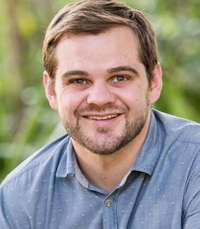 Building resilience & transforming communities through Biblical leadership
Building resilience & transforming communities through Biblical leadership
Biological information: Christian Bester is the Country Director of Samaritan’s Purse, South Sudan. He is a graduate of the African Center for Disaster Studies and the Northwest University School of Practical Theology in South Africa. He has experience in working with churches and communities in East Africa, the Middle-East, Eastern Europe and South-East Asia.
Session: His presentation will highlight Samaritan’s Purse’s strategy for community transformation in South Sudan, using Biblical principles of leadership. Case studies will feature community-led projects focused on improved livelihoods and resilience-building. Samaritan’s Purse is committed to working with local churches as agents of change in their communities.
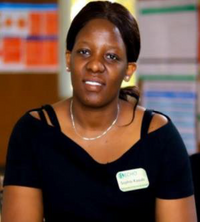 Wednesday Afternoon Resource Speakers– 3 simultaneous breakout sessions
Wednesday Afternoon Resource Speakers– 3 simultaneous breakout sessions
Perennial vegetables, indigenous nutrient-dense greens and simple ways to preserve them
Biographical information: Sophia Kasubi has been the Executive Assistant for ECHO East Africa since March 2015 where she manages Sustainable Agriculture and Appropriate Technologies projects and programs. She holds a Bachelor's degree in Sociology with a Specialization in Social Policy, Planning, and Administration from the University of Dar es Salaam and a Masters degree in Project Management from the East and Southern African Management Institute (ESAMI). She has twelve years of experience in managing and implementing programs and projects aimed at improving sustainable agriculture, food security, appropriate technologies, and improving nutrition.
Session: The presentation will discuss perennial vegetables, traditional nutrient dense vegetables, and their ‘game-changing’ role in improving nutrition at the household level. This presentation will focus on multiplication and distribution of plants that are very nutritious for human consumption.
Promoting kitchen gardens/medicinal gardens
Biographical information: Charles Bonaventure’s biodata is given above.
Session: The benefits of kitchen gardens are far reaching, bringing improvements to both the spiritual and physical dimensions of life. A commitment to high standards in implementation is critical to success, and cultivating such a commitment within farmers requires regular follow-up and encouragement. While certain challenges do exist in the adoption of kitchen gardens, evidence to date demonstrates the remarkable potential they hold for bringing healing and hope to the agricultural communities of Africa.
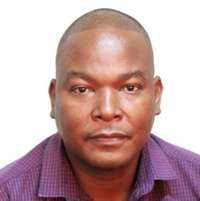 Supporting sustainable and climate sensitive agriculture through local seed multiplication and leveraging agriculture and VSLAs for community resilience building post emergencies.
Supporting sustainable and climate sensitive agriculture through local seed multiplication and leveraging agriculture and VSLAs for community resilience building post emergencies.
Biographical information: Tonderai Emmanuel Mushipe is the Food Security and Livelihoods Technical Lead for Samaritan’s Purse International Relief, South Sudan. He is a food security and livelihoods specialist with 17 years of experience in the humanitarian sector implementing relief, recovery/resilience and developmental programs on agriculture, livelihoods and markets integrating health, nutrition, WASH and protection. He holds a Master of Science degree in Food Security and Sustainable Agriculture. He is passionate about building the resilience and productive capacity of fellow farmers especially the most vulnerable groups.
Session: His presentation supports sustainable and climate sensitive agriculture through local seed multiplication, leveraging agriculture and VSLAs for community resilience building post emergencies and SP’s seed multiplication intervention. It will include background information on the needs (modality decision tree), context details, unpacking the modality, successes, challenges and recommendations. He will link the seed multiplication intervention to findings from Samaritan’s Purse Rapid Seed System Security Assessment (RSSSA) and Seed Systems Security Assessments (SSSA) for South Sudan and Seed value chains presentation by FAO South Sudan. He will give also a brief background on the emergency context of Mayendit County agriculture and VSLAs integrated program. He will present results from the VSLAs intervention in Mayendit and findings of a planned assessment on the Socio- economic determinants/factors for successful and impactful VSLAs participation.
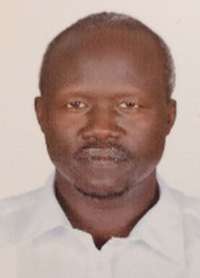 The role of smallholder rural farmers in seed system development in South Sudan
The role of smallholder rural farmers in seed system development in South Sudan
Biographical information: Dr. Tony Ngalamu is an Associate Professor of Plant Breeding College of Natural Resources and Environmental Studies, Juba, South Sudan. He is a plant breeder, and product of West Africa Centre for Crop Improvement, University of Ghana. Currently he leads the Seed Systems learning journey in South Sudan, and is equally a member of the Food Systems Transformation study team.
Session: In South Sudan, women play key roles in seed systems, as custodians and managers of seeds and seed related information. However, these roles are not always recognized, respected, supported and rewarded. The presentation will propose a number of seed interventions to empower farmers, with special attention paid to women.
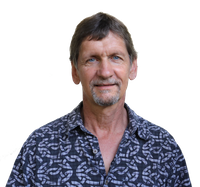 Factors affecting greater uptake of CA in East Africa - the CA Plus Model
Factors affecting greater uptake of CA in East Africa - the CA Plus Model
Biographical information: Neil Rowe Miller serves as a technical advisor to conservation agriculture projects funded by the Tearfund UK and Canadian Food Grains Bank in eastern Africa. His career spans 40 years working with small-scale farmers in the developing world as well as consulting for large-scale commercial grain farmers in the U.S. and running a non-profit agriculture training farm in central Texas.
Session: Conservation Agriculture (CA) provides clear soil conservation benefits, but meta-analyses from across sub-Saharan Africa indicate that CA on its own only provides a small increase in yields – not enough for most farmers to overcome food insecurity in the short-term. Taking a more holistic food systems approach to CA adoption, however, can result in much more significant increases in production, and dramatic improvements in food security even in the short term. This presentation will outline learnings from the Foodgrains Bank network in their nearly 2 decades of experience promoting CA, and will focus on their ‘CA Plus’ model.
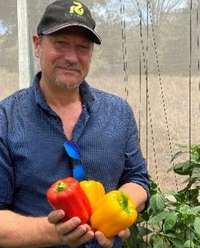 Economics and approach to successful smallscale greenhouse production
Economics and approach to successful smallscale greenhouse production
Biographical information: Harald Peeters is Rijk Zwaan’s Development Manager for Africa, as well as the Assistant General Manager of Rijk Zwaan and founder of Afrisem Seed Company. He is passionate about improving the livelihoods of African farmers. He has been working for the past 3 decades in mainly Tanzania in development, agricultural and horticultural sectors. During those years, from countless visits in remote production areas he grew a deep understanding of rural development and the role of agriculture in daily life.
Session: Growing produce in protected cultivation (greenhouses) is a way to provide for local production, employment, a possibility to grow organic and a viable enterprise for women and youth.
Seed saving and banking
Biography: Faith Juma has served at ECHO as a seed bank manager since 2019. She holds a degree in Human Nutrition from Sokoine University of Agriculture. She is a seed-saving enthusiast, and part of her work is to train people on proper seed-saving practices and seed bank management.
Session: This presentation will highlight best practices for seeds and saving seeds employed by smallholder farmers and individuals by using locally available technologies that are cheap and inexpensive to make and modify. Sophia will also share how the use of local technology is important in improving the livelihood of people who are embarking on seed saving and banking initiatives.
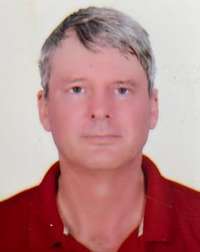 Practicum on fruit tree grafting
Practicum on fruit tree grafting
Biographical information: Dan Janzen is an agricultural development missionary working in South Sudan. He acquired a Masters degree in Agriculture at Oregon State University in International Agricultural Development, Agronomy/ Horticulture. For 45 years his experience is in diversified farm management & agricultural development with experience in agroforestry, orchards, vegetables, water harvesting, drip irrigation, grafting, and Christian worldview training.
Session: Fruit tree grafting is a way to ensure quality fruits of desired traits, getting better chance of survival of the grafted tree through selection of good rootstock, and getting earlier fruiting, reducing five to seven years of time compared to growing fruit trees from seed. This will be a practical session.
Experience of Harvesting Water Using Hafirs for Small-scale Irrigation in East Africa
Biography: Harold Msanya’s biography is described above.
Session: In semi-arid regions of East Africa, options for harvesting rainwater for multiple uses - including small-scale irrigation systems - are highly needed. Harold is going to share the experience of using an affordable rainwater harvesting system known as hafir. The session will explain how hafirs are constructed, users’ perceptions, challenges, and lessons.